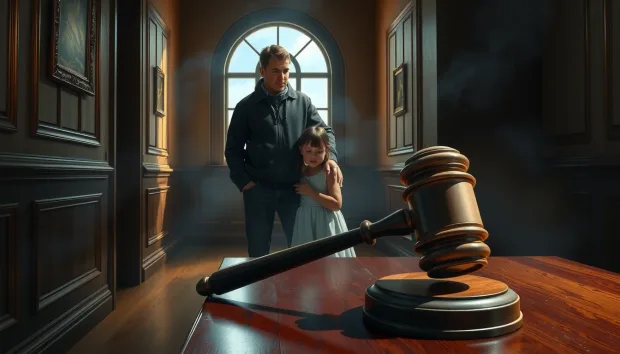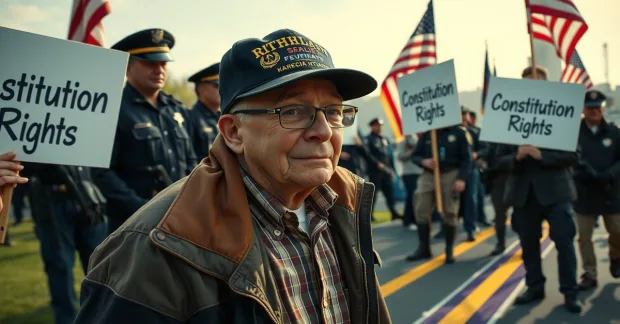
The Bill Clinton and Monica Lewinsky affair was more than a private indiscretion. It turned into one of the most notorious political scandals in U.S. history. What began as a secret relationship between a powerful U.S. president and a young White House intern spiraled into a series of investigations, public shaming, and the eventual Bill Clinton impeachment. Monica Lewinsky was only 22 years old when she found herself at the center of a media firestorm that would reshape the trajectory of American politics and public perception of presidential misconduct. Today, over two decades later, the ramifications of the Clinton-Lewinsky scandal continue to echo through discussions of media ethics, power dynamics, and public shaming.

The Genesis of the Clinton-Lewinsky Affair
How did the relationship between Bill Clinton and Monica Lewinsky begin?
In 1995, Monica Lewinsky, then a 22-year-old recent college graduate, began working as an intern in the White House. Her bright future seemed assured, but what transpired over the next two years would forever change her life and define her in the public eye. Lewinsky and Clinton began a secretive, consensual affair. Their encounters were mostly limited to the Oval Office—a fact that would later spark widespread outrage. While Clinton was deeply entrenched in leading the country, the affair remained concealed, even from those closest to them.
Clinton, at the time, was married to Hillary Clinton, who stood by him as the details of the scandal unfolded. The media obsession with Lewinsky and Clinton’s affair became relentless. From jokes on late-night talk shows to headlines splashed across tabloids, the scandal fueled a media frenzy like no other.
The Betrayal: Linda Tripp and the Secret Tapes
The affair may have remained secret if not for a betrayal that would expose the intimate details of the relationship. Linda Tripp, a co-worker of Lewinsky at the Pentagon, became a confidante to Lewinsky. She listened as Lewinsky shared details of her intimate encounters with the president, but instead of offering genuine support, Tripp saw an opportunity.
What role did Linda Tripp play in the Clinton-Lewinsky scandal?
In a move that would forever alter the course of the scandal, Tripp secretly recorded her conversations with Lewinsky. These recordings contained incriminating details of Lewinsky’s relationship with Clinton. In early 1998, Tripp handed over the tapes to Kenneth Starr, the independent counsel leading an investigation into Clinton’s involvement in other controversies, such as the Paula Jones lawsuit. These tapes became a central piece of evidence that led to the eventual public exposure of the affair.

The Smoking Gun: Monica Lewinsky’s Infamous Blue Dress
Among the many bombshells that emerged during the investigation was one of the most famous pieces of evidence in political history: Monica Lewinsky’s blue dress. This dress, stained with Clinton’s DNA, became the irrefutable proof of the affair. The blue dress wasn’t just a scandalous piece of clothing; it became a symbol of the entire investigation.
Where is Monica Lewinsky’s dress now?
The dress, which became an iconic piece of evidence during the Clinton impeachment trial, was handed over to authorities during the investigation. It is preserved as a historical artifact, although it is not on public display.
The blue dress was the definitive proof that contradicted Clinton’s repeated denials. In the aftermath of the scandal, Lewinsky admitted to saving the dress without realizing its significance at the time. When it was later revealed as part of Kenneth Starr’s investigation, it became the smoking gun in the case against the president.
Clinton’s Public Denial and the Famous Quote That Backfired
The scandal reached its peak in January 1998 when Bill Clinton publicly denied the affair in a televised press conference. With determination and a straight face, Clinton told the American public, “I did not have sexual relations with that woman, Miss Lewinsky.” This statement, now infamous, became a symbol of Clinton’s attempts to evade accountability.
For a time, Clinton’s denial seemed effective. Many members of the public and political allies stood by the president. But as more details emerged from Linda Tripp’s recordings and the evidence gathered by Kenneth Starr, it became clear that Clinton had lied.
The Impeachment of Bill Clinton
By December 1998, the House of Representatives voted to impeach Bill Clinton on charges of perjury and obstruction of justice. The perjury charge was rooted in Clinton’s false testimony during a deposition in the Paula Jones sexual harassment lawsuit, where he denied having an affair with Lewinsky. The obstruction charge stemmed from Clinton’s efforts to cover up the affair and tamper with evidence, including attempts to persuade Lewinsky to lie under oath.
What was the outcome of Bill Clinton’s impeachment?
Clinton was impeached by the House but ultimately acquitted by the Senate in February 1999. This allowed him to complete his second term as president, though his legacy would be forever marred by the scandal.
The impeachment trial was a deeply divisive moment in American history, with many questioning whether Clinton’s behavior warranted such drastic action. The trial played out against the backdrop of a strong economy, and Clinton’s approval ratings remained relatively high throughout the process. However, the impeachment had a lasting impact on the American political landscape, reshaping the nature of presidential accountability.
The Fallout for Monica Lewinsky
While Bill Clinton remained in office after his acquittal, Monica Lewinsky’s life was turned upside down. Her name became synonymous with the scandal, and she faced a level of public shaming that few could withstand. The media painted her as the villain, while Clinton, though tarnished, continued to hold political power.
How did Monica Lewinsky cope with the scandal?
In the years following the scandal, Lewinsky struggled with the intense public scrutiny. She faced humiliation on an unprecedented scale, with her personal life splashed across every newspaper and television screen. Lewinsky later revealed that the public shaming had led to severe depression and thoughts of suicide. She withdrew from the public eye for nearly a decade, living a life defined by the scandal.
Despite being a young woman at the time of the affair, Lewinsky was vilified by the media and the public. Every aspect of her life was scrutinized, and she was often portrayed as the instigator of the relationship, while Clinton’s abuse of power went largely overlooked.
Rebuilding a Life: Monica Lewinsky’s Journey Toward Redemption
After years of silence, Monica Lewinsky re-emerged into the public eye, but this time on her own terms. In 2014, she wrote a powerful essay for Vanity Fair, in which she broke her silence and shared her side of the story. This essay was a turning point in Lewinsky’s journey toward reclaiming her narrative.
Lewinsky became an advocate for mental health awareness, cyberbullying prevention, and the dangers of public shaming. Her personal experience with intense media scrutiny gave her a unique platform from which to speak out on these issues. In 2015, her TED Talk, titled “The Price of Shame,” went viral and received widespread acclaim for its raw honesty and emotional depth.
What is Monica Lewinsky doing now?
Today, Monica Lewinsky is a respected public speaker and advocate, using her platform to raise awareness about the damaging effects of online harassment and public shaming. She has become an influential figure in the #MeToo movement and continues to speak out against the abuse of power in politics and media.
Lewinsky’s advocacy work has reshaped her public image, and she is now viewed not as a victim, but as a powerful voice in the fight against bullying and public humiliation.
The Lasting Impact of the Clinton-Lewinsky Scandal
The Clinton-Lewinsky scandal was more than a personal failing by a sitting president. It exposed deep flaws in the political and media systems that continue to resonate today. The affair raised serious questions about the abuse of power, consent, and the treatment of women involved in political scandals.
How did the media cover the Lewinsky scandal?
The media’s handling of the scandal was aggressive and often sensationalized. Lewinsky became the face of the scandal, while Clinton’s role as a powerful figure was often downplayed. The coverage of Lewinsky was brutal, and she was subjected to intense ridicule in ways that revealed the media’s gender biases. The way the media framed the scandal set a dangerous precedent for how women involved in political controversies would be treated in the future.
Key Takeaways
- The Clinton-Lewinsky scandal redefined public perception of presidential conduct and accountability.
- The scandal was fueled by Linda Tripp’s betrayal, as her secret recordings of Lewinsky’s confessions were handed to investigators.
- The blue dress became a central piece of evidence, providing irrefutable proof of Clinton’s involvement with Lewinsky.
- Bill Clinton’s public denial of the affair, including his famous quote, “I did not have sexual relations with that woman,” became one of the most infamous moments of his presidency.
- Monica Lewinsky’s life was forever changed by the scandal, leading to years of public shaming and media ridicule.
- Despite her struggles, Monica Lewinsky’s activism has allowed her to reclaim her narrative, becoming a voice for mental health and cyberbullying awareness.
- The media’s handling of the scandal revealed deep gender biases, with Lewinsky taking the brunt of the public’s condemnation.
Frequently Asked Questions (FAQs)
- How old was Monica Lewinsky when she had an affair with Bill Clinton?**
Monica Lewinsky was 22 years old when the affair with President Clinton began.
2. What was the result of Bill Clinton’s impeachment?
Bill Clinton was impeached by the House but acquitted by the Senate, allowing him to finish his term as president.
3. How did the Clinton-Lewinsky scandal affect Hillary Clinton?
Hillary Clinton stood by her husband during the scandal but has since acknowledged the emotional toll it took on their marriage.
4. What is Monica Lewinsky’s stance on the #MeToo movement?
Monica Lewinsky has become an outspoken advocate for the #MeToo movement, focusing on issues of power dynamics and public shaming.
5. How did the media frame Monica Lewinsky during the scandal?
The media often portrayed Lewinsky as the instigator of the affair, subjecting her to intense public ridicule and shaming.
6. How has Monica Lewinsky rebranded herself?
Monica Lewinsky has transformed her image by becoming an advocate for cyberbullying prevention and mental health awareness, sharing her experiences with the world.
7. Where is Monica Lewinsky’s blue dress now?
The dress remains preserved as evidence from the investigation but is not available for public viewing.
Conclusion: A Scandal for the Ages
The Clinton-Lewinsky scandal remains one of the most captivating and controversial moments in modern political history. While both Bill Clinton and Monica Lewinsky have moved forward in their lives, the scandal serves as a powerful reminder of the dangers of power imbalances, media sensationalism, and public shaming. As society continues to grapple with issues of accountability and consent, the legacy of the scandal persists, offering important lessons for both the political and personal spheres.
ATTENTION: ALL IMAGES USED ARE GENERATED BY AI AND USED FOR PARODY.




















